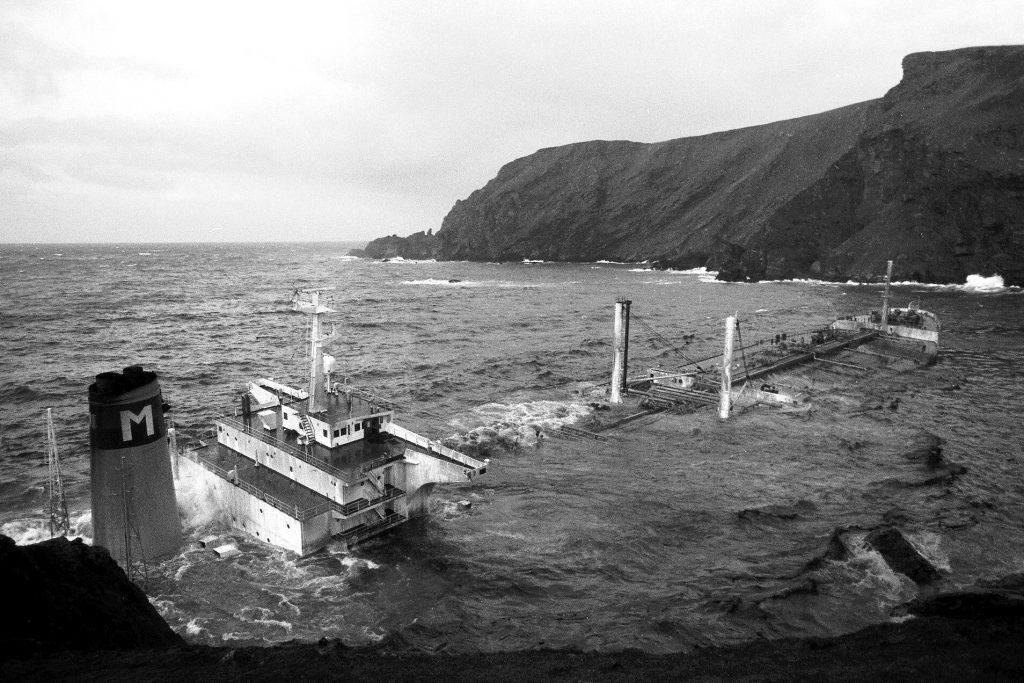
Vigilance is still of vital importance aboard oil tankers 25 years after the Braer vessel ran aground off Shetland, a Scottish MP said yesterday.
On January 5, 1993, the oil tanker was traveling between Norway and Canada when it lost power in hurricane force winds.
The vessel was forced aground at Garths Ness, Shetland, spilling more than 84,000 tonnes of crude oil.
Shetland and Orkney MP Alistair Carmichael said: “Constant vigilance is the thing, especially when you see a downturn in the oil price. That’s where the temptation will be to cut corners, and frankly there can be no corner cutting.
“The cost of transporting oil safely is something that should be built into the price and there should be no question of accepting anything less.”
Read more: Marine ops expert recalls ‘horrendous conditions’ on day of Braer grounding
After the incident, more than 100 recommendations were published in the Donaldson report to reduce the threat of pollution by an oil spill.
Among the suggestions was the implementation of more tug boats around the island.
However, a reduction in the amount of towing vessels means there is only one boat based in Orkney, which is expected to serve Shetland, Orkney and the Western Isles.
Mr Carmichael has criticised the Maritime and Coastguard Agency (MCA) for this reduction, saying: “For an agency that is supposed to be responsible for the safety of shipping and the protection of our coastline, I still think that it’s a pretty disgraceful action for them to take.
“If you had suggested on the 10th anniversary that the Donaldson recommendations should not be implemented it would have caused outrage.
“But over time the memory fades.”
Calls for a second emergency tug for Scotland were made last month after it took 16 hours for one to reach a Norwegian cargo ship. MV Fame suffered an engine failure in stormy conditions off Taransay on December 14.
The issue also arose after the Transocean Winner oil rig was blown ashore on the Western Isles in August 2016.
Environmental group WWF said a failure to move away from a dependency on oil, combined with the limited cover of emergency towing vessels, meant the risk of another major pollution incident on Scotland’s coast remained a real danger.
MCA declined to comment.